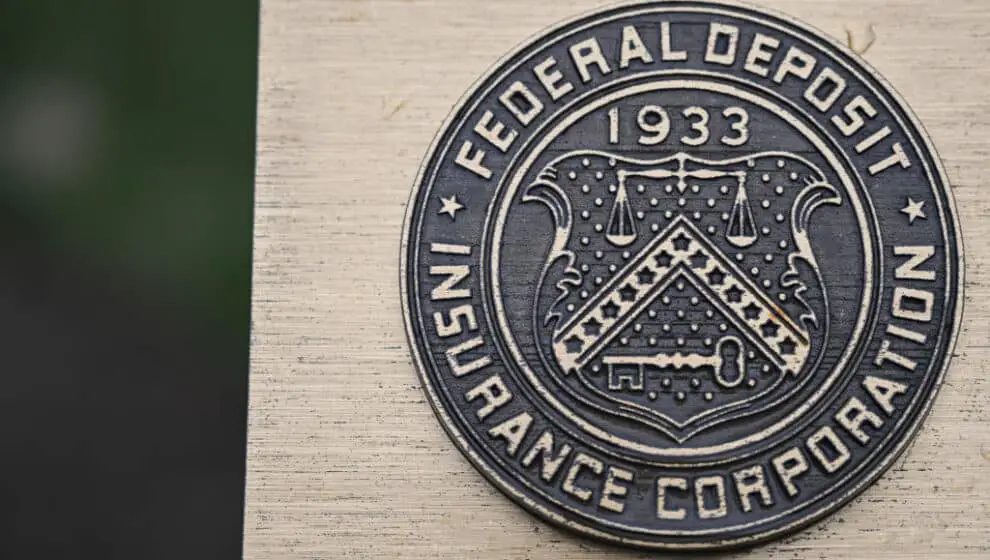The ongoing banking crisis is creating greater calls for the FDIC to protect large depositors, but lawmakers are arguing this is a bad idea.
Key Details
- Since 1934, the Federal Deposit Insurance Corporation (FDIC) has insured bank depositors to prevent them from losing money in banking crises or collapses.
- The FDIC has capped depositors with up to $250,000 in insurance since 2008.
- Recent banking failures have resulted in federal discussions to remove or raise the cap and insure larger depositors against further liquidity crises, Bloomberg reports.
- Republican lawmakers argue further “bailouts” are dangerous, while Congressional Democrats are pushing for greater banking regulations and higher insurance caps.
Why It’s Important
The precipitous collapses of Silicon Valley Bank on March 10 and Signature Bank on March 12 have reignited discussions about the cap, as thousands of startups and businesses in Silicon Valley were nearly bankrupted by the ongoing banking crisis and required billions of dollars worth of bailouts from the Federal Reserve to continue operating.
The goal of FDIC is not to have a dollar on hand for every dollar loaned in the system, as they would require $18 trillion in liquidity, as Bloomberg notes. FDIC insurance exists to boost confidence in the financial system and to leave depositors confident that their money is not going to be lost in a crisis, as previous generations dealt with during the great depression or other banking crises.
As we previously reported, confidence in smaller regional banks has been shaken by the crisis. One in six Americans has moved money in the aftermath of the ongoing banking crises in the past two weeks.
Alternative Perspective
Raising the insurance cap would not require the FDIC to fund U.S. liquidity fully, but it would require the bank to hold greater liquidity than it already has. It currently holds $128 billion in its Deposit Insurance Fund against $10 trillion in deposits, Bloomberg notes. Depending on how high Congress could approve a cap increase, holdings must increase appropriately.
Senator Josh Hawley (R-MO) has taken the lead against calls for raising or eliminating the cap, arguing that it amounts to a 2008-style bank bailout. He tweeted Monday that “the ruling class learned their lesson after 2008. The public hates bailouts. So now they’ll do the bailouts without a vote, and without consent.” Other Republicans have signaled a willingness to work with Democrats on a cap increase.
As we previously reported, leading investors have been critical of the Federal Reserve’s generous approach to bailouts, noting that it promotes financial irresponsibility, reduces incentives that prevent risky decision-making, and sends the wrong message to banks.

